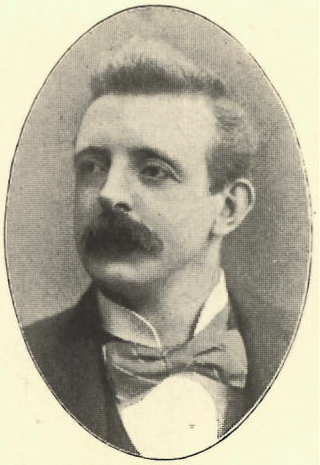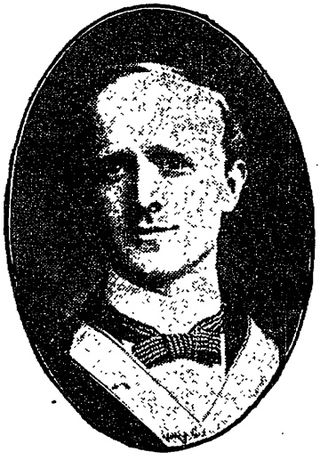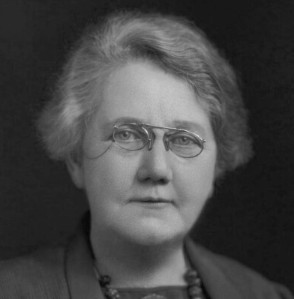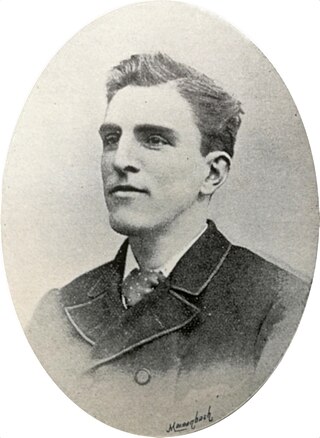Related Research Articles

James Keir Hardie was a Scottish trade unionist and politician. He was a founder of the Labour Party, and served as its first parliamentary leader from 1906 to 1908.

The Independent Labour Party (ILP) was a British political party of the left, established in 1893 at a conference in Bradford, after local and national dissatisfaction with the Liberals' apparent reluctance to endorse working-class candidates, representing the interests of the majority. A sitting independent MP and prominent union organiser, Keir Hardie, became its first chairman.
There have been various groups in Canada that have nominated candidates under the label Labour Party or Independent Labour Party, or other variations from the 1870s until the 1960s. These were usually local or provincial groups using the Labour Party or Independent Labour Party name, backed by local labour councils made up of many union locals in a particular city, or individual trade unions. There was an attempt to create a national Canadian Labour Party in the late 1910s and in the 1920s, but these were only partly successful.
The National Democratic League was a cross-party political organisation in the United Kingdom, which aimed to unite Liberal Party and former Independent Labour Party (ILP) members in a campaign for basic democratic reforms.

Frederick William Jowett was a British Labour politician.
James MacDonald was a British trade unionist.

Ada Nield Chew was a campaigning socialist and a British suffragist. Her name is on the plinth of Millicent Fawcett's statue in Parliament Square, London.

Hannah Mitchell was an English suffragette and socialist. Born into a poor farming family in Derbyshire, Mitchell left home at a young age to work as a seamstress in Bolton, where she became involved in the socialist movement. She worked for many years in organisations related to socialism, women's suffrage and pacifism. After World War I she was elected to Manchester City Council and worked as a magistrate, before later working for Labour Party leader, Keir Hardie.

Edward Robertshaw Hartley was a British socialist politician.
Marion Coates Hansen was an English feminist and women's suffrage campaigner, an early member of the militant Women's Social and Political Union (WSPU) and a founder member of the Women's Freedom League (WFL) in 1907. She is generally credited with having influenced George Lansbury, the Labour politician and future party leader, to take up the cause of votes for women when she acted as his agent in the general election campaign of 1906. Lansbury became one of the strongest advocates for the women's cause in the pre-1914 era.
Thomas Duckworth Benson (1857–1926), known as T. D. Benson, was a British socialist activist.

Helen Crawfurd was a Scottish suffragette, rent strike organiser, Communist activist and politician. Born in Glasgow, she was brought up there and in London.

Alfred Barton was a British socialist politician.
Christopher Thomas Douthwaite was a British socialist politician.

Servetus Mortimer Holden was a British journalist and political activist. The only Parliamentary candidate ever put forward by the National Prohibition Party, he was associated with the labour movement and campaigned on old age pensions throughout his career.

John McKean McLachlan was a British socialist politician.

Florence Nightingale Harrison Bell was a British socialist and suffragist activist.

William Leonard Hall was a British trade union leader, journalist, and socialist activist, who held prominent positions in the Independent Labour Party.
Alice Morrissey was a British Catholic, socialist leader and suffragette activist from Liverpool, who was imprisoned in the campaign for women's right to vote.
Harriette Beanland was a British textile worker and Suffragette and secretary to the Women's Labour League branch in Nelson in Lancashire.
References
- 1 2 3 4 Edwards, Joseph (1900). The Labour Annual. Liverpool: Joseph Edwards. p. 155–156.
- ↑ "The Labour candidate for Bordesley". Manchester Guardian. 16 September 1904.
- ↑ Ugolini, Laura (1997). Independent Labour Party men's and women's suffrage in Britain, 1893-1914 (PDF). Greenwich: University of Greenwich. p. 284. Retrieved 10 April 2019.
- ↑ Delap, Lucy; DiCenzo, Maria; Ryan, Leila (2006). Feminism and the Periodical Press, 1900-1918. Vol. 3. Taylor & Francis. ISBN 0415320283.